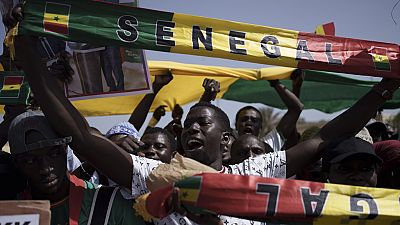
- Knowledge is power
- The Future Of Possible
- Hibs and Ross County fans on final
- Tip of the day: That man again
- Hibs and Ross County fans on final
- Spieth in danger of missing cut
By Mustapha Lawal
“Sall would cling on to power indefinitely” is an unprecedented statement following the multiple times President Macky Sall has vowed not to extend his rule.
Senegal, which has never delayed a presidential election before, faces a period of uncertainty. The postponement puts President Sall’s legitimacy in question, with one minister already resigning in protest. The country’s commitment to democratic principles is now under scrutiny, challenging its reputation as a stable political force in the region.
In the long history of the West African country, Senegal, its parliament had on Monday, Feb. 5 voted to hold the postponed presidential election on Dec. 15 instead of the earlier scheduled Feb. 25. This was done in the face of public outcry that led some opposition lawmakers to blockade proceedings until security forces intervened. However, before that, President Macky Sall’s unexpected announcement on Saturday, Feb. 3 of a postponement has propelled Senegal into unfamiliar constitutional territory.
Senegal, often seen as a beacon of stability in West Africa – for its notable lack of military coups and a history of peaceful presidential transitions, is grappling with a constitutional crisis as President Macky Sall’s decision to delay the presidential election indefinitely raises concerns and sparks protests.
This move not only jeopardises the nation’s standing as a pillar of democratic stability in a region plagued by coups but also risks tarnishing its reputation. “Senegal is known as a country with a strong democracy but this is no longer the case…the only thing we want is a fair election.” a Senegalese told Reuters.
The postponement announced due to concerns over the approval process of candidates by the Constitutional Council, has triggered a wave of opposition. President Sall argues that the delay is necessary for an inquiry into the vetting process of candidates. However, critics see it as a move to consolidate power and eliminate opponents. Riot police clashed with protesters outside the parliamentary building in Dakar, reflecting the growing discontent among the populace.
Opposition leaders and civil society groups have labelled the delay a “constitutional coup,” emphasising the threat it poses to Senegal’s democratic traditions. The country has been known for its peaceful transitions of power, making this deviation from the norm particularly striking. The Constitutional Council’s exclusion of key candidates, including opposition figure Ousmane Sonko, has fueled the discontent. Sonko, a vocal critic, has been in prison since July on charges of inciting insurrection. The opposition alleges that Sall is manipulating the judicial system to sideline challengers.
Democracy in recession in Africa
Democracy, as the pillar of the modern world, offers many rights and privileges including freedom of speech, information, transparency and accountability amongst many others. The temporal unfolding of occurrence has been able to find assistance in the arms of it.
There is no doubt that the practice of democracy does not just emphasise the acceptance and representation of the people. Still, it is evidence that the people are in power and establishing their dominion through designated offices. Democratic practices are tokens of contemporary social contracts that hold social trust, tolerance, and development strains.
African politics is undergoing a profound transformation, shaped by the dynamic forces of the digital landscape. In recent years, the power of online platforms in influencing public opinion and electoral outcomes has become undeniable.
Historical trends reveal a persistent inclination among Senegal’s leaders to exceed prescribed term limits. Despite the regularity of elections, evidence suggests a consistent pattern of leaders attempting to prolong their tenures beyond designated limits.
President Sall was reported to have once proposed a monarchical form of government based on an argument that kings are preferable to presidents. According to Ibrahim Muhammad Mustapha in an article for FactCheckAfrica, President Sall’s actions hint at a potential departure from the principles of democratic governance.
Controlling Information Flow and Digital Rights
According to data from the International Institute for Democracy and Electoral Assistance (IDEA), over 40% of Africans now have access to the internet, a significant increase from a decade ago. Thereby making the digital space become an active ground for political discussion, analysis and commentary.
According to Afeez Rabiu in an article for FactCheckAfrica, the rise of social media platforms and the proliferation of fake news websites have created a complex ecosystem where political narratives are shaped, amplified, and sometimes distorted. Thereby there is an ongoing conversation as regards the control of social media activities and the protection of digital, moral and constitutional rights of citizens.
Internet shutdowns have become a prevalent tool for African governments seeking to control information flow. In the past two years, governments in the Republic of the Congo, Niger, Uganda, and Zambia have cut off internet access during election periods. The Nigerian government recently started a conversation on controlling the media landscape too.
Official narratives often justify shutdowns as measures to curb violence, maintain public order, or prevent the spread of misinformation. However, there are conversations around the chances of the shutdowns being used to silence opposing voices, restrict freedom of expression and hinder transparency.
In a stark escalation of political tensions, the Senegal government has once again resorted to the drastic measure of suspending mobile internet services. According to Professor Toyin Falola in Tribune, “Democracy is in recession in Africa. Sall is affirming what we know.”
The latest Internet shutdown follows President Macky Sall’s decision to postpone the presidential elections slated for February 25. The Senegalese government points to the proliferation of “hateful and subversive messages” circulating on social networks as the primary rationale behind the suspension, a justification reminiscent of earlier instances.
Residents in Dakar, Senegal’s capital, have resorted to alternative means such as WiFi to access the internet, highlighting the profound impact of such shutdowns on daily life. Notably, the Senegalese government had previously arrested individuals for selling Starlink terminals without the requisite licences or authorisations in August. The economic toll of these shutdowns is staggering, with estimates indicating losses of $300,000 per hour during the June suspension.
This development in Senegal is not isolated but aligns with a broader trend across Africa, where governments have increasingly employed internet shutdowns as a means of exerting control. Since the Arab Spring in 2011, such shutdowns have become a recurrent strategy employed by various African governments, with at least ten countries implementing them last year.
This underscores the precarious balance between political stability, access to information, and the implications of technological controls in the modern era.
As stated in an earlier FactCheckAfrica publication, the year 2024 is poised to subject democracy to an unprecedented and expansive examination. The sheer scale of the many electoral processes taking place this year indicates a potential upheaval of political establishments and an escalation of geopolitical tensions on a global scale.
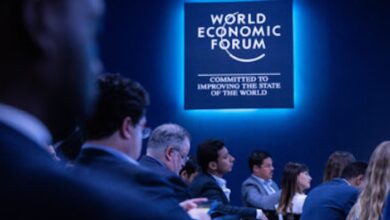

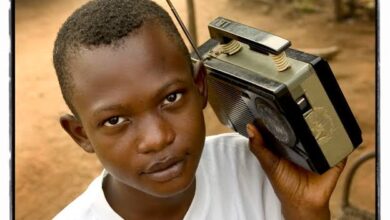
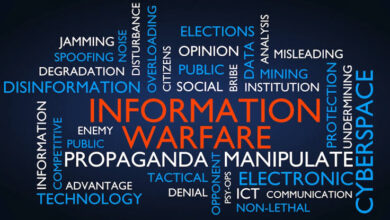
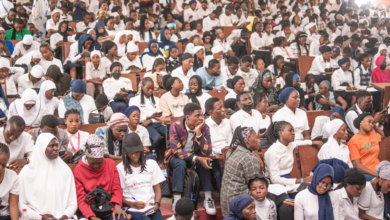
Hi, this is a comment.
To get started with moderating, editing, and deleting comments, please visit the Comments screen in the dashboard.